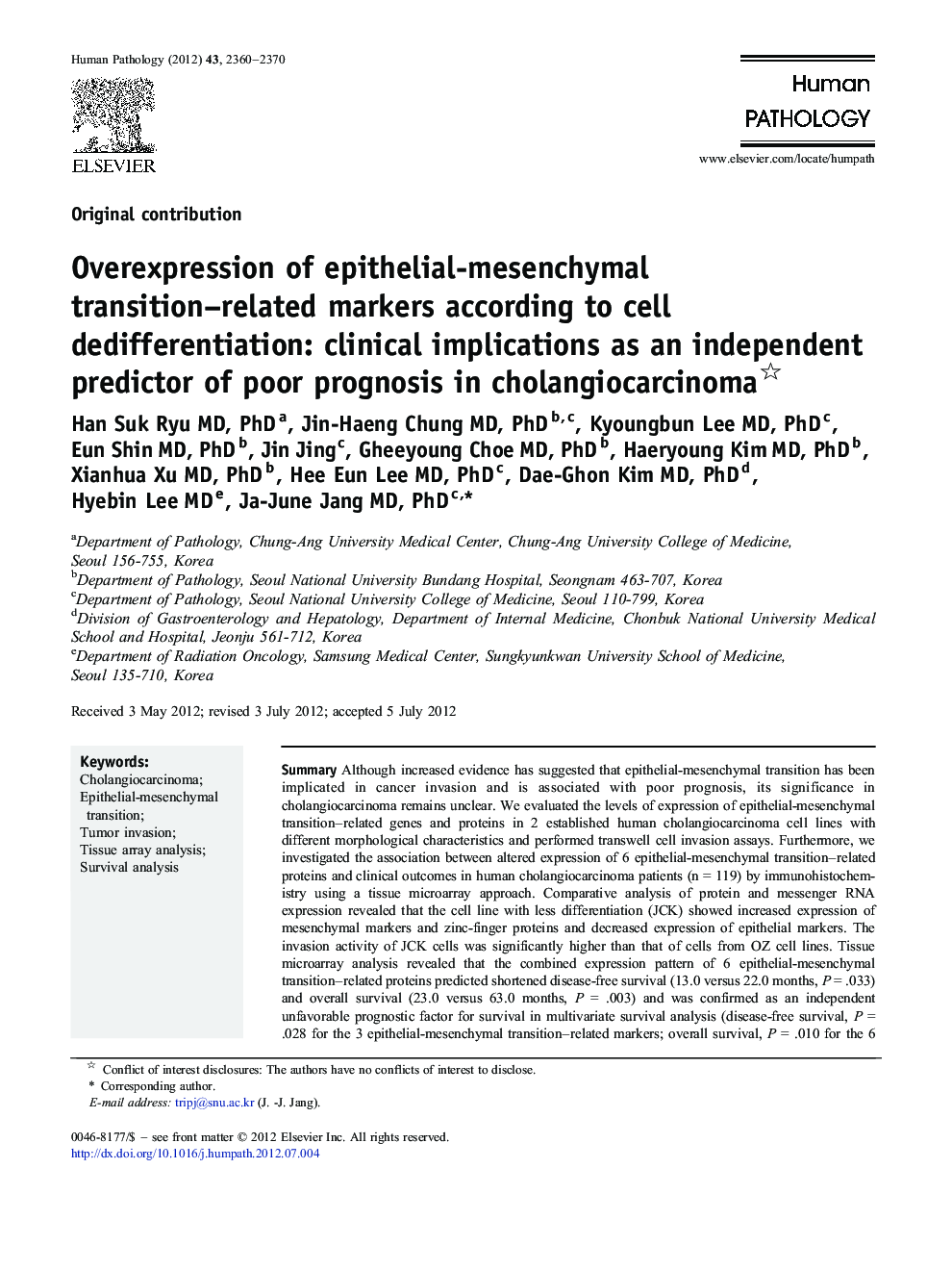| Article ID | Journal | Published Year | Pages | File Type |
|---|---|---|---|---|
| 4133732 | Human Pathology | 2012 | 11 Pages |
SummaryAlthough increased evidence has suggested that epithelial-mesenchymal transition has been implicated in cancer invasion and is associated with poor prognosis, its significance in cholangiocarcinoma remains unclear. We evaluated the levels of expression of epithelial-mesenchymal transition–related genes and proteins in 2 established human cholangiocarcinoma cell lines with different morphological characteristics and performed transwell cell invasion assays. Furthermore, we investigated the association between altered expression of 6 epithelial-mesenchymal transition–related proteins and clinical outcomes in human cholangiocarcinoma patients (n = 119) by immunohistochemistry using a tissue microarray approach. Comparative analysis of protein and messenger RNA expression revealed that the cell line with less differentiation (JCK) showed increased expression of mesenchymal markers and zinc-finger proteins and decreased expression of epithelial markers. The invasion activity of JCK cells was significantly higher than that of cells from OZ cell lines. Tissue microarray analysis revealed that the combined expression pattern of 6 epithelial-mesenchymal transition–related proteins predicted shortened disease-free survival (13.0 versus 22.0 months, P = .033) and overall survival (23.0 versus 63.0 months, P = .003) and was confirmed as an independent unfavorable prognostic factor for survival in multivariate survival analysis (disease-free survival, P = .028 for the 3 epithelial-mesenchymal transition–related markers; overall survival, P = .010 for the 6 epithelial-mesenchymal transition–related markers). In conclusion, our results suggest that altered expression of a number of epithelial-mesenchymal transition–related genes in tumor cells with poor differentiation may explain their increased invasive ability. Our results also suggest that altered expression of a suite of epithelial-mesenchymal transition–related proteins could be used as a tool to predict poor outcomes in human cholangiocarcinoma patients.
